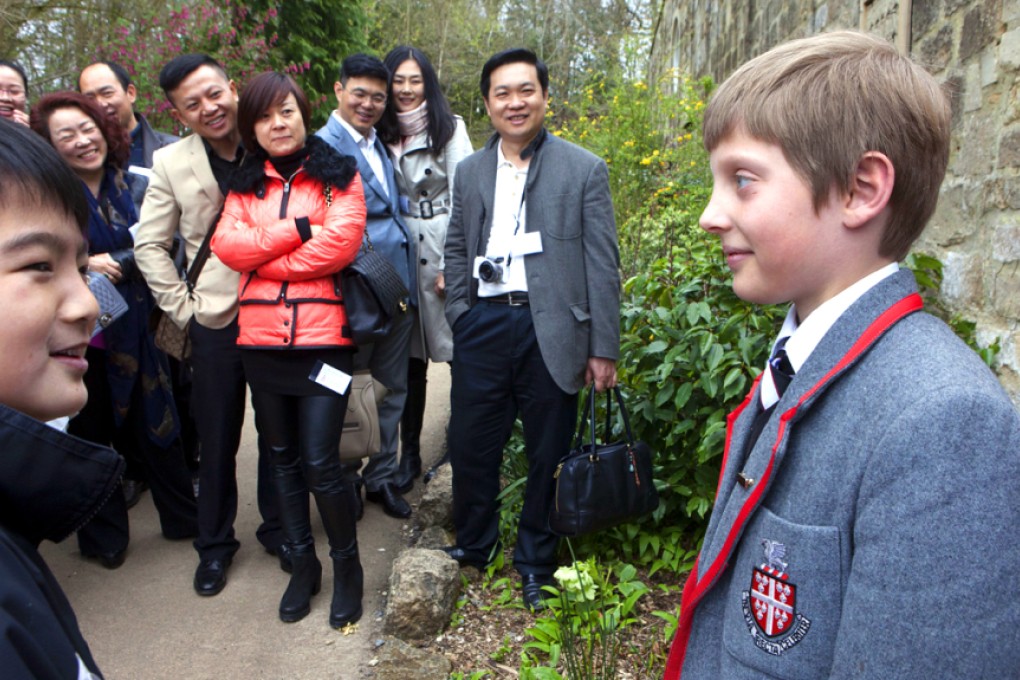Why Chinese parents are sending their children abroad to study at a younger age
Parents are turning to overseas kindergartens as well as public and private high schools in search of a broad education for their children

Cen Qingcai, a retired resident of Shanghai, wanders among the stalls of foreign universities and middle schools at the Shanghai East Asia Exhibition Hall, looking for an ideal destination for his 12-year-old granddaughter to study abroad.
“My granddaughter is studying French at the distinguished Shanghai Foreign Language School. She spends all of her time on her studies and the school puts pressure on its students. Our family hopes to send her to a school where she does not need to worry so much about her academic scores,” the old man said.
Cen said the family could afford the tuition and living costs in foreign countries – which range from 150,000 yuan to 300,000 yuan (HK$190,000 to HK$360,000) per year. As she already attended a boarding school, she was prepared for studying abroad.
Tired of an education system that relentlessly focuses on academic scores at the expense of pupil’s overall development, a growing number of Chinese families are preparing to send their children abroad, even at a young age, for the sake of a broader education.
Alex Zou, CEO of Vancouver Public Education Alliance, which assists Chinese pre-Grade 12 pupils studying at public schools in Canada’s British Columbia province, said his client base had doubled in each of the past few years. Most of the children study at high schools, but younger ones are sent to junior schools or even kindergartens, he said.
“High school students we serve only need to pay about C$24,000 (HK$150,000) a year, including tuition and board, which can easily be covered by many Chinese families,” Zou said. “I think studying in Canada has become an ‘education for ordinary people’.”